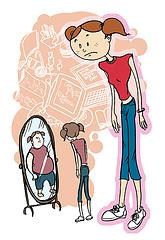
Anxiety
What is Anxiety?
Anxiety is another common problem experienced by many people of all ages, but it is most common in people in their 20s. We all have worries, and most of the time these worries are appropriate and proportionate to the possible outcome of a situation. The term anxiety is used to describe what happens when these worries get out of control and begin to affect our day to day lives. Anxiety is very often a symptom of other mental health problems, such as phobias where people experience irrational fears (eg. fear of spiders), panic disorders where people can experience panic attacks, or even eating disorders and body image disorders, where anxiety is focused around disliking your physical appearance or controlling food intake in order to have more control over your life. However, anxiety can also occur without another mental health problem, or it can be a precursor to other problems if it is not managed appropriately.
What are the Symptoms of Anxiety?
Similarly to stress, the symptoms of anxiety can vary greatly between individuals. The general basis for anxiety is worrying excessively and very often predicting the worst possible outcome from situations, however, you may also experience some of the following:
- Restlessness
- Feeling a sense of dread
- Feeling constantly 'on edge'
- Poor concentration
- Irritability
- Impatience
Some physical symptoms of anxiety can be:
- Dizziness
- Drowsiness and tiredness
- Pins and needles
- Irregular heartbeat (palpitations)
- Muscle aches and tension
- Dry mouth
- Excessive sweating
- Feeling short of breath
- Stomach ache
- Nausea (feeling sick)
- Headaches
- Excessive thirst
- Needing to use the toilet often
- Painful or missed periods
- Difficulty falling or staying asleep (insomnia)

